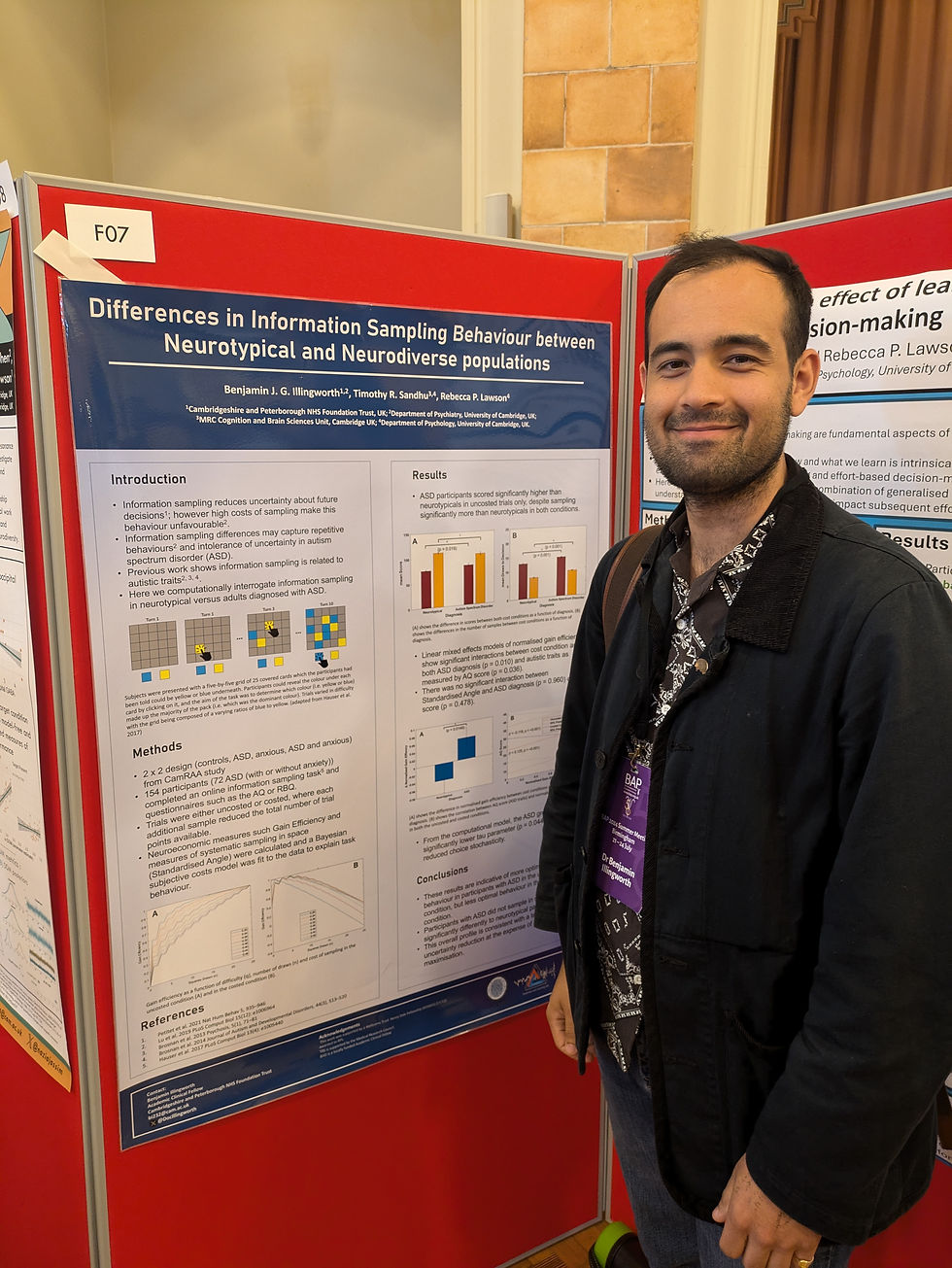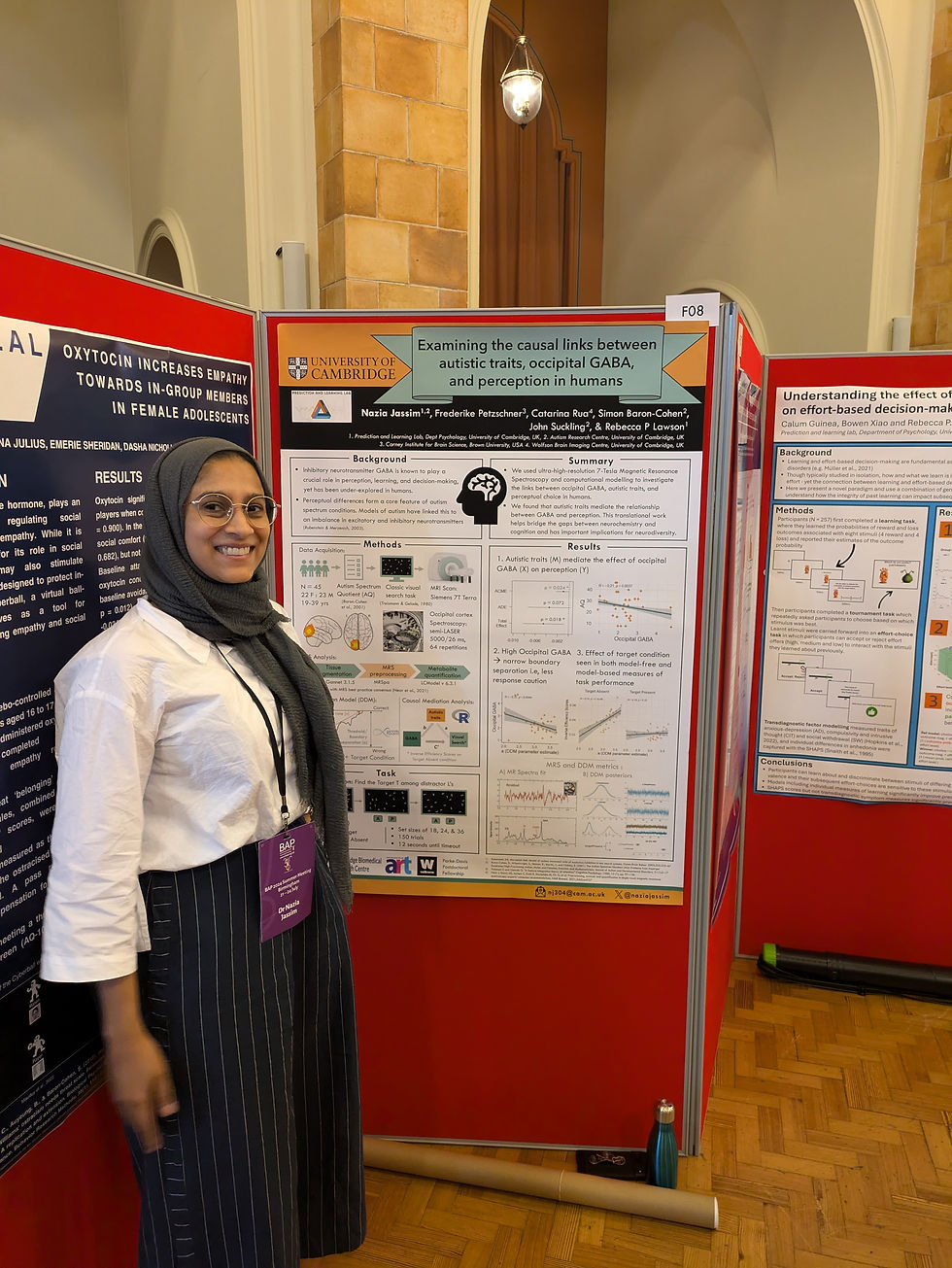BAP 2024 round up!
- Jul 30, 2024
- 1 min read
Updated: Nov 6, 2025
As the year’s meetings go, BAP 2024 was a lively one for the PaL Lab, with a strong line-up of talks and posters showcasing our work on uncertainty, learning, and affect.
Tom Murray explored how acute stress alters social learning under uncertainty, showing slower adaptation to social cues, especially in those high in compulsivity and social withdrawal.
Bowen (Eddie) Xiao examined volatility processing and valence biases across anxiety and autism in a preregistered online study, revealing subtle differences in how people update beliefs about rewards and punishments.
Benji Illingworth presented work on information sampling in autism, showing increased sampling and reduced efficiency consistent with an enhanced drive to reduce uncertainty.
Nazia Jassim linked autistic traits to occipital GABA using 7T MRS, connecting inhibitory tone with individual differences in visual perception.
Tim Sandhu discussed how stress and social withdrawal shape aversive learning and perceived uncertainty, using computational models to tease apart latent processes.
Calum Guinea presented showing that when learning is less reliable, participants are less willing to expend effort, especially those higher in anxiety or low mood.
Rebecca Lawson closed the loop with a talk titled: Computations of uncertainty in infancy: unlocking potential for early intervention, highlighting new findings from high-density optical imaging showing how infants process prediction errors, and how early differences in uncertainty computation might inform future approaches to mental health.
A cracking set of presentations from the lab spanning stress, autism, anxiety, motivation, and development - all united by our shared fascination with how brains learn about an uncertain world.









Comments